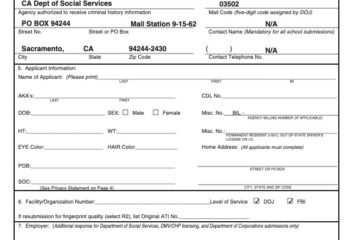Real estate transactions often involve complex legal processes, large sums of money, and multiple parties. Notaries are crucial in ensuring that everything is handled legally and securely. Notaries are responsible for authenticating the documents, ensuring they are executed correctly, and preventing fraud in these transactions. Their involvement helps establish the transaction’s legitimacy and protects all parties involved. This blog will explore notaries’ critical role in real estate transactions and how they contribute to smooth and secure property transfers.
Understanding the Role of Notaries in Real Estate
A notary public, a legally authorized individual, is a key figure in the real estate process. They are experts in verifying the authenticity of document signatures, ensuring that the person signing the document is who they claim to be, and confirming that they are signing voluntarily. Notaries, or notary publics, are often called upon to authenticate various documents, including deeds, mortgages, contracts, powers of attorney, and other legal agreements.
The notary’s primary role is to prevent fraud. By verifying that the person signing the document understands its contents and willingly signs it, the notary provides an additional layer of security. This process helps avoid disputes or challenges to the legitimacy of the papers later on, ensuring a secure and fraud-free transaction.
Ensuring Proper Execution of Legal Documents
One of the most important responsibilities of a notary in real estate transactions is ensuring that the documents are executed correctly. Real estate transactions involve multiple documents that must be signed and properly completed before the property transfer can occur. These documents often have legal and financial implications, and any mistake or oversight could delay the process or lead to legal complications.
A notary ensures the document is signed before them, providing the signers are properly identified and understand its legal significance. For example, when a buyer and seller execute a transfer deed, the notary will verify their identities and ensure they sign voluntarily. If parties are unwilling or unable to sign the document, the notary can stop the process and ensure everything is handled appropriately.
Additionally, the notary will ensure that the document is completed. Missing signatures or incomplete forms can lead to delays or invalid transactions. The notary helps confirm that all the necessary steps are followed, from the signatures to acknowledgments.
Notaries: The Guardians Against Fraud in Real Estate Transactions
Real estate transactions are prime targets for fraud due to their high financial stakes and the large number of documents involved. Fraudulent schemes can range from forged signatures to misrepresentation of ownership. Notaries deter fraud by verifying the signers’ identities and ensuring all actions are performed legally and with consent.
For example, in a real estate transaction, the notary will verify that the individual signing a deed is the rightful owner. This helps prevent situations where someone may try to sell a property they do not own or have no legal right to sell. The notary will also confirm that the signer is acting willingly and not under duress, which helps ensure that the transaction is legitimate.
Furthermore, notaries can help prevent the alteration of documents after they have been signed. Once a document is notarized, the notary’s seal and signature provide protection that ensures the document has not been tampered with. If any party attempts to change the terms of the document after it has been signed, the notary’s involvement makes it more difficult to alter the document without raising suspicion.
Acknowledging and Certifying Important Documents
In real estate transactions, notaries often handle a variety of important documents that require proper acknowledgment and certification. Acknowledgments are a form of certification in which the signer confirms that they signed the document voluntarily and understand its contents. Notaries are responsible for administering the acknowledgment and ensuring that the document is signed in the notary’s presence.
For example, in the case of a deed, the notary will certify that the person executing the deed did so voluntarily and with full understanding of the document’s legal implications. The notary’s acknowledgment provides legal assurance that the deed is valid and that the signer was not coerced into signing the document. This is particularly important in the case of documents such as mortgages or loan agreements, where the consequences of misrepresentation or fraud can be severe.
The notary also ensures the document is correctly dated and includes the necessary information. In some cases, such as powers of attorney or certain types of contracts, the notary may be required to provide a certification that confirms the document’s validity.
Notaries: The Final Seal in the Closing Process
Notaries play a crucial role in the closing process, the final step in a real estate transaction before the transfer of ownership. They are essential in ensuring that all documents are properly executed and the transaction is legally binding, providing the audience with confidence in this crucial step.
In many real estate transactions, the notary is present at the closing to witness the signing of the final documents. The notary will verify the parties’ identities and sign the documents correctly. If there are any issues with the papers, the notary can help resolve them before the transaction proceeds. Once all documents are properly executed, the notary will affix their seal to them, ensuring that the appropriate authorities recognize the transaction.
Conclusion
The role of notaries in real estate transactions cannot be overstated. Notaries ensure that legal documents are properly executed, authentic, and fraud-free. Their involvement in the transaction provides an added layer of security and helps ensure everything is in order before the transfer of property occurs. Notaries are essential to completing real estate transactions, from verifying identities to preventing fraud and ensuring that documents are legally binding. Whether buying, selling, or refinancing a property, or even protecting one’s home from creditors, working with a professional notary can help you navigate the process confidently and safely. If you’re in the midst of a real estate transaction, consider seeking the services of a professional notary to ensure a smooth and secure process.
Frequently Asked Questions About Notaries in Real Estate Transactions
What role does a notary public play in real estate transactions?
A notary public verifies the identities of parties signing key real estate documents and ensures the signing is voluntary and legally compliant. This is especially critical for deeds, loan agreements, and title transfers. Learn more about our notary services.
Which real estate documents typically require notarization?
Common documents that require notarization include grant deeds, quitclaim deeds, deeds of trust, refinancing documents, and mortgage closing forms. Notarization helps prevent fraud and ensures proper recording with the county.
Can you notarize real estate documents outside of business hours?
Yes. Anshin Notary offers mobile notary services with flexible scheduling, including evenings and weekends, to accommodate real estate closings and urgent transactions. Contact us to book an appointment.
Do you offer notary services for real estate agents and brokers?
Yes. We regularly assist real estate professionals with notarizing property transfer documents, listing and purchase agreements, and escrow instructions across Los Angeles and Beverly Hills.
Is a notary the same as an escrow officer?
No. A notary’s role is to witness and validate signatures, while an escrow officer oversees the financial and legal aspects of the transaction. However, both work together to ensure a smooth real estate closing process.
Also Read: What Documents Require Notarization for International Use?




0 Comments